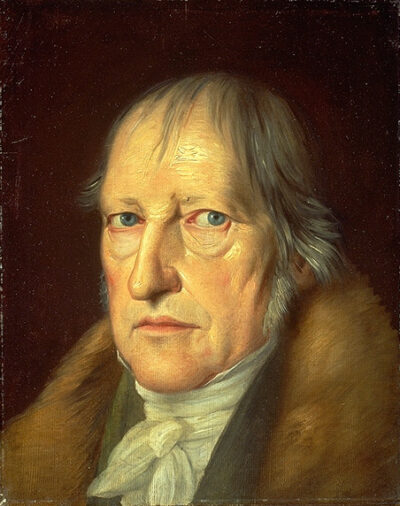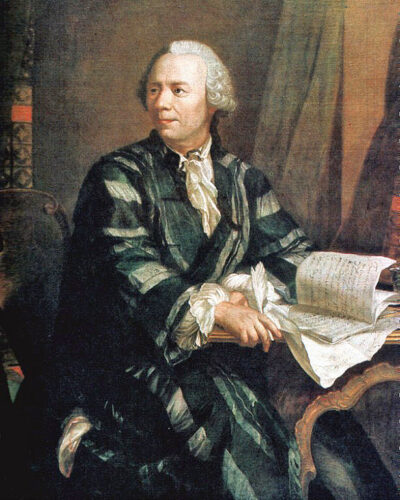Founder of the Common Sense School: “The Sacred Instinct” – A Study of the Mind Based on the Principles of Common Sense
イントロダクション
リード 常識学派の創始者 の『心の哲学』、『常識の原則に基づく精神の研究』は、18世紀スコットランドの哲学者トーマス・リードによって著された重要な作品です。
リードは、デイヴィッド・ヒュームの懐疑主義に対抗し、常識の原則を中心に据えた哲学を展開しました。
彼の思想は、日常の経験や一般的な知識を重視し、複雑な哲学的疑問に対する実践的な解答を提供します。
この記事では、リードの「神聖なる本能」とは何か、そしてそれがどのように彼の常識学派の基礎を形成したのかを詳しく探ります。
リードの哲学がどのように現代にも影響を与えているのか、その背景とともに解説します。
Introduction
Thomas Reid, an 18th-century Scottish philosopher, authored significant works such as “Philosophy of Mind” and “A Study of the Mind Based on the Principles of Common Sense.” As the founder of the Common Sense School, Reid challenged David Hume’s skepticism by developing a philosophy centered on principles of common sense.
Reid’s ideas emphasize everyday experiences and general knowledge, offering practical answers to complex philosophical questions. This article delves into what Reid’s concept of “The Sacred Instinct” entails and how it forms the foundation of his Common Sense School.
Additionally, we will explore how Reid’s philosophy continues to influence contemporary thought, providing context and background to his enduring impact.

David Hume
トマス・リードの紹介:スコットランド常識学派の創始者
トマス・リード(1710-1796)は、スコットランド常識学派の創始者として知られています。
彼は「神聖なる本能」に基づく哲学を提唱し、当時のヨーロッパ哲学界に大きな影響を与えました。
リードは、デイヴィッド・ヒュームの懐疑主義に対抗し、常識に基づく信念の正当性を主張しました。
彼の代表作『常識の原則に基づく精神の研究』(1764年)は、感覚経験と常識的直観を重視する彼の思想を明確に示しています。
この著作は、感覚データと精神の働きについての詳細な分析を提供し、現代の認知科学にも影響を与えています。
リードの思想は、アメリカの思想家トマス・ジェファーソンにも影響を与え、彼の哲学は「アメリカ独立宣言」にも反映されています。リードの常識哲学は、現代においてもその価値を失っておらず、哲学史における重要な位置を占めています。
Introduction to Thomas Reid: Founder of the Scottish School of Common Sense
Thomas Reid (1710-1796) is recognized as the founder of the Scottish School of Common Sense. He introduced a philosophy based on “The Sacred Instinct,” which significantly impacted European philosophy of his time.
Reid challenged David Hume’s skepticism, advocating for the legitimacy of beliefs grounded in common sense. His seminal work, “An Inquiry into the Human Mind on the Principles of Common Sense” (1764), clearly illustrates his emphasis on sensory experience and intuitive understanding.
This book provides a detailed analysis of sensory data and the mind’s workings, influencing modern cognitive science. Reid’s ideas also inspired American thinker Thomas Jefferson, reflecting in the philosophy underpinning the “Declaration of Independence.” Even today, Reid’s common sense philosophy remains valuable and holds an important place in the history of philosophy.

Thomas Jefferson
トマス・リードの生涯と業績
トマス・リードは1710年、スコットランドに生まれた。彼は「スコットランド常識学派の創始者」として知られ、18世紀の哲学に大きな影響を与えた。
リードの業績の中でも特に注目されるのは、彼の著書『常識の原則に基づく精神の研究』である。
この作品は、デイヴィッド・ヒュームの懐疑主義に対抗する形で執筆された。
リードは「神聖なる本能」という概念を提唱し、人間の知覚や認識には本能的な信頼が必要だと主張した。
彼の理論は、知識の基盤が常識にあるとするもので、当時の哲学界に新たな視点を提供した。
また、彼はエディンバラ大学で教鞭をとり、多くの学生に影響を与えた。
リードの思想は、その後の哲学者にも大きな影響を与え、現代の認識論にもその足跡を残している。
彼の生涯と業績は、スコットランドだけでなく、世界中の哲学者たちにとって重要な研究対象となっている。
The Life and Achievements of Thomas Reid
Thomas Reid was born in Scotland in 1710 and is known as the founder of the Scottish School of Common Sense, significantly influencing 18th-century philosophy. Among his notable works, “An Inquiry into the Human Mind on the Principles of Common Sense” stands out.
Written as a counter to David Hume’s skepticism, Reid’s book introduces the concept of “The Sacred Instinct,” arguing for an instinctive trust in human perception and cognition. His theories, which posit that common sense forms the basis of knowledge, brought a fresh perspective to the philosophical community of his time.
Reid also taught at the University of Edinburgh, where he impacted many students. His ideas have influenced subsequent philosophers and left a lasting mark on modern epistemology. Reid’s life and contributions continue to be a significant focus of study for philosophers worldwide, not just in Scotland.
スコットランド常識学派の概要と影響
スコットランド常識学派は18世紀にトマス・リードによって創始された哲学学派である。
リードは「神聖なる本能」として知られる概念を提唱し、人間の知識は直感的な常識に基づくと主張した。
彼の代表的な著作『常識の原則に基づく精神の研究』は、デカルトの懐疑主義に対抗する形で書かれたもので、直感的な知識の信頼性を強調している。
この学派は、デヴィッド・ヒュームの懐疑主義に対する反論としても知られており、知識の基盤を日常的な感覚と常識に求めた。
Overview and Impact of the Scottish School of Common Sense
The Scottish School of Common Sense, founded by Thomas Reid in the 18th century, is a philosophical movement that emphasizes the role of intuitive common sense in human knowledge. Reid introduced the concept known as “The Sacred Instinct,” asserting that our understanding is based on innate common sense.
His seminal work, “An Inquiry into the Human Mind on the Principles of Common Sense,” was written in opposition to Cartesian skepticism, highlighting the reliability of intuitive knowledge. This school of thought is also recognized for its rebuttal of David Hume’s skepticism, advocating that everyday experiences and common sense are the foundations of knowledge.

René Descartes
リードの思想は、後の哲学者たちに大きな影響を与え、特にアメリカのプラグマティズムや現代の認知科学においてもその影響が見られる。
スコットランド常識学派は、リードの後継者たちによっても発展し、ジェームズ・ビーティやダグラス・スチュワートなどがその思想を継承した。
彼らは、常識の重要性をさらに強調し、理性と感覚の調和を追求した。
Reid’s ideas significantly influenced subsequent philosophers and can be seen in American pragmatism and modern cognitive science. The Scottish School of Common Sense was further developed by Reid’s successors, including James Beattie and Dugald Stewart, who continued to emphasize the importance of common sense and sought harmony between reason and sensory perception.
「神聖なる本能」:リードの哲学思想の核心
トマス・リードは18世紀スコットランドの哲学者であり、スコットランド常識学派の創始者として知られています。
彼の代表作『常識の原則に基づく精神の研究』では、「神聖なる本能」という概念が重要な役割を果たしています。
リードは、常識を人間の知識の基盤と見なし、それが「神聖なる本能」によって支えられていると主張しました。
この「神聖なる本能」は、理性や経験に先立つ直感的な理解を指します。
リードは、知識の確実性を保証するためには、こうした本能的な認識が不可欠であると考えました。
彼の思想は、デカルトやヒュームの懐疑論に対する反論としても位置づけられます。
リードの哲学は、18世紀の啓蒙時代の文脈において、科学的探求と宗教的信仰の調和を目指しました。
彼の「神聖なる本能」の概念は、現代の認知科学にも影響を与えており、人間の認知プロセスの理解に新たな視点を提供しています。
“The Sacred Instinct”: The Core of Reid’s Philosophy
Thomas Reid, an 18th-century Scottish philosopher and founder of the Scottish School of Common Sense, is known for his influential work “An Inquiry into the Human Mind on the Principles of Common Sense.” Central to this work is the concept of “The Sacred Instinct.”
Reid argued that common sense forms the foundation of human knowledge and that this foundation is supported by “The Sacred Instinct,” an intuitive understanding that precedes reason and experience. He believed that this instinctual recognition is essential for ensuring the certainty of knowledge.
Reid’s philosophy served as a rebuttal to the skepticism of Descartes and Hume. Within the context of the Enlightenment, his ideas aimed to harmonize scientific inquiry with religious faith.
“The Sacred Instinct” concept continues to influence modern cognitive science, offering new insights into human cognitive processes.
「神聖なる本能」の定義と特徴
「神聖なる本能」は、18世紀の哲学者トマス・リードによって提唱された概念である。
リードはスコットランド常識学派の創始者として知られ、彼の思想は『常識の原則に基づく精神の研究』に詳述されている。
この「神聖なる本能」とは、人間が持つ生得的な知識や感覚を指し、理性や経験に依存せずに「常識」として理解されるものだ。
リードは、これを人間が世界を理解し、他者とコミュニケーションを取るための基盤と見なした。
リードの思想は、デカルトの合理主義やヒュームの懐疑主義に対抗する形で発展した。
彼は、常識に基づく知識が人間の「本能」として存在し、それが疑問の余地なく信頼できるものであると主張した。
特に、視覚や触覚などの感覚は、世界の現実を直接的に把握する手段として重要視された。
この「神聖なる本能」は、現代の認知科学や心理学にも影響を与え続けている。
リードの考え方は、直感や感覚がどのように知識の形成に寄与するかを理解するための重要な視点を提供している。
Definition and Characteristics of “The Sacred Instinct”
“The Sacred Instinct” is a concept proposed by 18th-century philosopher Thomas Reid. Known as the founder of the Scottish School of Common Sense, Reid detailed his ideas in “An Inquiry into the Human Mind on the Principles of Common Sense.”
This “Sacred Instinct” refers to innate knowledge and senses that are understood as “common sense” without relying on reason or experience. Reid viewed this instinct as the foundation for human understanding of the world and communication with others.
Developed in opposition to Descartes’ rationalism and Hume’s skepticism, Reid’s philosophy asserts that knowledge based on common sense exists as a human “instinct” and is unquestionably reliable. He particularly emphasized the importance of senses like sight and touch as direct means of perceiving reality.
“The Sacred Instinct” continues to influence modern cognitive science and psychology, providing a crucial perspective on how intuition and sensory perception contribute to knowledge formation.
「神聖なる本能」がもたらす精神の理解
トマス・リードは18世紀の「スコットランド常識学派の創始者」として知られています。
彼の著作『常識の原則に基づく精神の研究』は、哲学界に大きな影響を与えました。
リードは「神聖なる本能」という概念を提唱し、人間の精神と知識の源泉について深く探求しました。
リードの哲学は、デカルトやロックの懐疑論に対抗する形で発展しました。
彼は、常識が人間の知識の基盤であると主張しました。
この「神聖なる本能」は、我々が世界を理解するための基本的な能力を指します。
リードは、常識を無視することなく、哲学的な探求を進めることが重要だと説きました。
リードの思想は、カントやヘーゲルなどの後世の哲学者にも影響を与えました。
彼の「神聖なる本能」の概念は、現代の認知科学や心理学にも通じるものがあります。
リードの哲学は、単なる理論ではなく、実生活に根ざしたものであり、彼の著作は今なお多くの人々に読まれ続けています。
Understanding the Mind through “The Sacred Instinct”
Thomas Reid is known as the 18th-century founder of the Scottish School of Common Sense. His work, “An Inquiry into the Human Mind on the Principles of Common Sense,” had a profound impact on the philosophical world.
Reid introduced the concept of “The Sacred Instinct,” delving deeply into the origins of human mind and knowledge. His philosophy developed in opposition to the skepticism of Descartes and Locke, asserting that common sense is the foundation of human knowledge.
This “Sacred Instinct” refers to our fundamental ability to comprehend the world. Reid emphasized the importance of advancing philosophical inquiry without disregarding common sense. His ideas influenced later philosophers like Kant and Hegel.
Reid’s concept of “The Sacred Instinct” also resonates with modern cognitive science and psychology. His philosophy, grounded in practical life, continues to be widely read and appreciated today.

Georg Wilhelm Friedrich Hegel
『常識の原則に基づく精神の研究』:リードの主要著作
トマス・リードは18世紀のスコットランド哲学者であり、「スコットランド常識学派の創始者」として知られています。
彼の主要著作『常識の原則に基づく精神の研究』は、哲学界に大きな影響を与えました。
この著作では、リードは「神聖なる本能」という概念を提唱し、常識に基づく認識の重要性を強調しました。
リードの理論は、当時のデカルトやヒュームの懐疑主義に対抗するものでした。
彼は人間の知覚や認識が基本的に信頼できるものであり、常識に基づく判断が真実に近いと主張しました。
これにより、リードは哲学の実践的側面を強調し、日常生活における判断の重要性を訴えました。
『常識の原則に基づく精神の研究』は、1776年に出版され、リードの思想を体系的にまとめたものです。
この著作は、現代の認識論や倫理学にも影響を与え続けています。
リードの思想は、哲学のみならず、心理学や教育学の分野でも重要な位置を占めています。
“An Inquiry into the Human Mind on the Principles of Common Sense”: Reid’s Major Work
Thomas Reid, an 18th-century Scottish philosopher, is known as the founder of the Scottish School of Common Sense. His major work, “An Inquiry into the Human Mind on the Principles of Common Sense,” had a significant impact on the philosophical world.
In this book, Reid introduced the concept of “The Sacred Instinct” and emphasized the importance of knowledge based on common sense. His theories were developed in opposition to the skepticism of Descartes and Hume. Reid argued that human perception and cognition are fundamentally reliable, and that judgments based on common sense are close to the truth.
Through this approach, Reid highlighted the practical aspects of philosophy and stressed the importance of sound judgment in everyday life. Published in 1764, “An Inquiry into the Human Mind on the Principles of Common Sense” systematically presents Reid’s ideas.
This work continues to influence modern epistemology and ethics. Reid’s philosophy holds a significant position not only in philosophy but also in psychology and education.
『常識の原則に基づく精神の研究』の内容と影響
トマス・リードは18世紀の哲学者であり、スコットランド常識学派の創始者として知られる。
彼の代表作『常識の原則に基づく精神の研究』は、デカルトやヒュームの懐疑主義に対抗する形で執筆された。
この著作では、リードは「神聖なる本能」としての常識を強調し、人間の認知能力に対する信頼を回復しようと試みた。
リードの理論は、常識を哲学の基盤とすることで、日常的な経験や直感を重視する姿勢を示している。
彼は、我々が世界を知覚する際の基本的な信念は、疑う余地のないものであると主張した。
この考え方は、後の哲学者たちにも大きな影響を与え、実証主義や現代の認知科学にも通じる部分がある。
特に、リードの「常識の原則」は、教育や心理学の分野でも応用され、実践的な価値を持つものとして評価されている。
彼の思想は、単なる哲学的な議論にとどまらず、現実世界での問題解決にも寄与している。
“The Contents and Influence of ‘An Inquiry into the Human Mind on the Principles of Common Sense'”
Thomas Reid, an 18th-century philosopher, is renowned as the founder of the Scottish School of Common Sense. His seminal work, “An Inquiry into the Human Mind on the Principles of Common Sense,” was written as a response to the skepticism of Descartes and Hume.
In this book, Reid emphasizes common sense as “The Sacred Instinct,” aiming to restore trust in human cognitive abilities. His theory, grounding philosophy in common sense, highlights the importance of everyday experiences and intuition.
Reid argued that our fundamental beliefs when perceiving the world are beyond doubt. This perspective has influenced later philosophers and resonates with empiricism and modern cognitive science.
Particularly, Reid’s principles of common sense find application in fields such as education and psychology, valued for their practical significance. His philosophy extends beyond mere philosophical discourse, contributing to problem-solving in the real world.
『常識の原則に基づく精神の研究』から見るリードの哲学
トマス・リードは18世紀のスコットランド常識学派の創始者であり、彼の哲学は「常識の原則」に基づいています。
彼の著作『常識の原則に基づく精神の研究』は、哲学界において重要な位置を占めています。
この著作では、リードは「神聖なる本能」という概念を提唱し、人間の知識や信念がどのように形成されるかを探求しました。
リードの哲学はデカルトやヒュームの懐疑論に対抗する形で発展しました。
彼は、日常生活における常識的な信念が哲学的懐疑に耐えうるものであると主張しました。
具体的には、視覚や触覚といった感覚経験が信頼できるものであり、これらの経験に基づく信念は正当であると考えました。
リードの思想は、現代の認知科学や心理学にも影響を与えています。
彼の「神聖なる本能」は、直感的な判断や自然な理解がどのように機能するかを説明するための枠組みとして利用されています。
このように、トマス・リードの哲学は、過去から現在に至るまで多くの学問分野において重要な役割を果たしています。
“Reid’s Philosophy as Seen through ‘An Inquiry into the Human Mind on the Principles of Common Sense'”
Thomas Reid, the founder of the Scottish School of Common Sense in the 18th century, bases his philosophy on the principles of common sense.
His work, “An Inquiry into the Human Mind on the Principles of Common Sense,” holds a significant place in the philosophical world.
In this book, Reid introduces the concept of “The Sacred Instinct” and explores how human knowledge and beliefs are formed.
Reid’s philosophy emerged in opposition to the skepticism of Descartes and Hume. He argued that common-sense beliefs in everyday life withstand philosophical doubt.
Specifically, Reid believed that sensory experiences such as sight and touch are reliable, and beliefs based on these experiences are justified.
Reid’s ideas have influenced modern cognitive science and psychology. His concept of “The Sacred Instinct” is used as a framework to explain intuitive judgments and natural understanding.
Thus, Thomas Reid’s philosophy continues to play an important role in various academic fields from the past to the present.
トマス・リードの哲学と現代への影響
トマス・リードは18世紀のスコットランド哲学者であり、「スコットランド常識学派の創始者」として知られる。
彼の哲学は、デカルトやロックの懐疑論に対抗し、「常識」を重視する立場を取った。
リードの主著『常識の原則に基づく精神の研究』(1764年)は、日常生活での「常識」を哲学的に探求し、認識論に新たな視点を提供した。
リードは「神聖なる本能」と呼ばれる直感的な知識を強調し、人間の認識能力は神から与えられたものであると主張した。
この思想は、後の哲学者や心理学者に大きな影響を与え、特にアメリカのプラグマティズムに影響を与えた。
現代においても、リードの「常識」の概念は、日常的な判断や倫理的な問題に対する実践的なアプローチとして評価されている。
彼の哲学は、科学的探求や教育の分野でも応用され続けており、その影響力は衰えない。
“The Philosophy of Thomas Reid and Its Impact on the Modern Era”
Thomas Reid, an 18th-century Scottish philosopher, is known as the founder of the Scottish School of Common Sense.
His philosophy countered the skepticism of Descartes and Locke, emphasizing “common sense.”
Reid’s seminal work, “An Inquiry into the Human Mind on the Principles of Common Sense” (1764), philosophically explores “common sense” in everyday life, offering new perspectives in epistemology.
Reid emphasized intuitive knowledge, referred to as “The Sacred Instinct,” arguing that human cognitive abilities are God-given.
This philosophy profoundly influenced later philosophers and psychologists, particularly contributing to American Pragmatism.
Even in modern times, Reid’s concept of “common sense” is valued for its practical approach to everyday judgment and ethical issues.
His philosophy continues to find applications in scientific inquiry and education, maintaining its enduring influence.
リードの哲学がもたらした社会・文化への影響
18世紀スコットランドの哲学者トマス・リードは、「スコットランド常識学派の創始者」として知られています。
彼の哲学は、当時の「合理主義」に対抗する形で発展しました。
リードは『常識の原則に基づく精神の研究』において、人間の知識は「神聖なる本能」によって支えられていると主張しました。
この「本能」は、我々が世界を理解するための基本的な信念を形成するものです。
リードの思想は、社会や文化に大きな影響を与えました。
特に、彼の「常識」の概念は、教育や政治の分野で広く受け入れられました。
リードの哲学は、知識の基盤としての「常識」を強調することで、一般市民の教育と啓蒙に貢献しました。
また、彼の思想は、アメリカ独立戦争後の新しい国家の形成にも影響を与えました。
リードの哲学は、民主主義の基礎を築く上で重要な役割を果たしました。
“The Social and Cultural Impact of Reid’s Philosophy”
Thomas Reid, a philosopher from 18th-century Scotland, is renowned as the founder of the Scottish School of Common Sense.
His philosophy evolved in opposition to the prevailing “rationalism” of his time.
In his work “An Inquiry into the Human Mind on the Principles of Common Sense,” Reid argued that human knowledge is supported by a “sacred instinct.”
This instinct forms the fundamental beliefs through which we comprehend the world.
Reid’s ideas exerted significant influence on society and culture.
Particularly, his concept of “common sense” found wide acceptance in fields like education and politics.
By emphasizing “common sense” as the foundation of knowledge, Reid contributed to the education and enlightenment of ordinary citizens.
Moreover, his philosophy impacted the formation of new nations following the American Revolutionary War.
Reid’s philosophy played a crucial role in laying the groundwork for democracy.
リードの哲学が現代の思想・科学に与える影響
トマス・リードは18世紀のスコットランド常識学派の創始者であり、彼の哲学は現代の思想や科学に深い影響を与えている。
リードの「神聖なる本能」という概念は、我々が日常的に持つ常識や直感を重視するものであり、これが現代の認知科学や心理学においても重要な役割を果たしている。
彼の著作『常識の原則に基づく精神の研究』では、常識が人間の認識の基盤であることを主張し、この考え方は後の哲学者や科学者に多大な影響を与えた。
特に、リードの思想はデカルト的な懐疑主義に対抗するものであり、これが現代の科学的探求においても健全な懐疑と信頼のバランスを保つための指針となっている。
リードの哲学は、現代の「科学的実証主義」や「現象学」とも共鳴する部分があり、これが彼の思想が未だに研究され続ける理由となっている。
“The Influence of Reid’s Philosophy on Modern Thought and Science”
Thomas Reid, the founder of the Scottish School of Common Sense in the 18th century, has deeply influenced modern thought and science with his philosophy.
Reid’s concept of the “sacred instinct” emphasizes the importance of everyday common sense and intuition, playing a crucial role in contemporary cognitive science and psychology.
In his work “An Inquiry into the Human Mind on the Principles of Common Sense,” Reid argued that common sense forms the foundation of human cognition, a notion that has had a profound impact on subsequent philosophers and scientists.
Particularly, Reid’s philosophy serves as a counterbalance to Cartesian skepticism, providing a framework for maintaining a healthy balance between skepticism and trust in modern scientific inquiry.
Reid’s philosophy resonates with modern scientific empiricism and phenomenology, contributing to the ongoing study of his ideas.
トマス・リードと「神聖なる本能」の再評価
トマス・リードは、18世紀のスコットランド常識学派の創始者として知られています。
彼の思想の中心には「神聖なる本能」という概念が存在します。
この概念は、リードが1764年に発表した『常識の原則に基づく精神の研究』において詳細に論じられています。
リードは、人間の認識能力が自然に備わっているものであり、それが「神聖なる本能」として機能すると主張しました。
この理論は、デカルトやロックの懐疑主義に対抗するものであり、常識を重視する哲学的立場を確立しました。
リードの影響は、後の哲学者たちにも広がり、特にアメリカのプラグマティズムに大きな影響を与えました。
彼の思想は現代においても再評価されており、その普遍的な価値が見直されています。
“Reassessing Thomas Reid and the Concept of ‘Sacred Instinct'”
Thomas Reid is renowned as the founder of the Scottish School of Common Sense in the 18th century.
At the core of his philosophy lies the concept of the “sacred instinct.”
This concept is extensively discussed in Reid’s 1764 work, “An Inquiry into the Human Mind on the Principles of Common Sense.”
Reid argued that human cognitive abilities are inherently endowed, functioning as the “sacred instinct.”
His theory countered the skepticism of Descartes and Locke, establishing a philosophical stance that emphasizes common sense.
Reid’s influence extended to later philosophers, particularly impacting American pragmatism significantly.
His ideas are undergoing a reevaluation in modern times, with their enduring value being reassessed.

John Locke FRS
リードの思想の現代的な解釈
トマス・リードは18世紀スコットランドの哲学者であり、スコットランド常識学派の創始者として知られています。
彼の思想は「神聖なる本能」に基づいており、常識を哲学の基盤とすることを提唱しました。
リードの主要著作『常識の原則に基づく精神の研究』では、人間の知識や認識の起源を探求しています。
この著作は1764年に出版され、哲学界に大きな影響を与えました。
リードは、デカルトやヒュームの懐疑論に対抗する形で、常識を重視する立場を取りました。
彼は、日常生活で当たり前とされる知識や信念が、哲学的な検証に耐えうるものであると主張しました。
この思想は、現代の認識論や倫理学にも大きな影響を与えています。
特に、リードの「神聖なる本能」の概念は、現代の心理学や認知科学の分野でも再評価されています。
彼の思想は、合理主義や経験主義とは異なる視点を提供し、現代の多様な学問領域で新たな解釈が試みられています。
リードの思想は、今なお新しい視点を提供し続けています。
“Modern Interpretations of Reid’s Philosophy”
Thomas Reid, an 18th-century philosopher from Scotland, is renowned as the founder of the Scottish School of Common Sense.
His philosophy is rooted in the concept of the “sacred instinct,” advocating for common sense as the foundation of philosophy.
In his seminal work “An Inquiry into the Human Mind on the Principles of Common Sense,” Reid delves into the origins of human knowledge and perception.
Published in 1764, this work had a significant impact on the philosophical community.
Contrary to the skepticism of Descartes and Hume, Reid emphasized the importance of common sense.
He argued that the knowledge and beliefs considered commonplace in daily life withstand philosophical scrutiny.
This philosophy has greatly influenced modern epistemology and ethics.
In particular, Reid’s concept of the “sacred instinct” is being reevaluated in contemporary fields such as psychology and cognitive science.
His philosophy offers a different perspective from rationalism and empiricism, prompting new interpretations across various academic disciplines.
Reid’s ideas continue to provide fresh insights to this day.
「神聖なる本能」の現代文化・社会への適用
トマス・リードは18世紀の哲学者であり、「スコットランド常識学派の創始者」として知られています。
彼の主要な著作『常識の原則に基づく精神の研究』では、「神聖なる本能」が重要な概念として取り上げられています。
この「神聖なる本能」は、人間が生まれながらに持つ基本的な認識能力を指し、現代の文化や社会においてもその意義は大きいです。
現代社会では、合理主義や科学技術の進展が人々の生活を大きく変えましたが、リードの「神聖なる本能」の考え方は、直感や常識が持つ価値を再評価するための重要な視点を提供します。
例えば、複雑なデータ分析やアルゴリズムに依存する現代の意思決定プロセスにおいても、直感的な判断が重要な役割を果たすことがあります。
リードの思想は、教育や倫理の分野でも応用されています。
教育現場では、子供たちが持つ自然な好奇心や探求心を尊重する教育方法が注目されています。
また、倫理学においても、日常生活での直感的な道徳判断が重要視されるようになっています。
リードの「神聖なる本能」は、現代社会においても多くの場面でその価値を発揮しています。
“Application of the ‘Sacred Instinct’ to Contemporary Culture and Society”
Thomas Reid, an 18th-century philosopher, is renowned as the founder of the Scottish School of Common Sense.
In his seminal work “An Inquiry into the Human Mind on the Principles of Common Sense,” the concept of the “sacred instinct” is highlighted as a significant notion.
This “sacred instinct” refers to the fundamental cognitive ability inherent in humans, which holds great significance in today’s culture and society.
In contemporary society, rationalism and the advancement of science and technology have significantly altered people’s lives. However, Reid’s concept of the “sacred instinct” offers an important perspective for reevaluating the value of intuition and common sense.
For example, in modern decision-making processes heavily reliant on complex data analysis and algorithms, intuitive judgment plays a crucial role.
Reid’s philosophy is also applied in the fields of education and ethics. In education, there is a growing emphasis on educational methods that respect children’s natural curiosity and inquiry.
Similarly, in ethics, there is a growing recognition of the importance of intuitive moral judgments in everyday life.
The “sacred instinct” proposed by Reid continues to demonstrate its value in various aspects of contemporary society.
まとめ:トマス・リードと「神聖なる本能」の意義
トマス・リードは、18世紀の哲学者であり、スコットランド常識学派の創始者として知られています。
彼の思想の中心には、「神聖なる本能」という概念があります。
リードは、1785年に発表された『常識の原則に基づく精神の研究』でこの概念を詳述しました。
彼の主張によれば、人間は生まれつき持っている「本能」によって、世界を理解し、道徳的な判断を下すことができるのです。
リードの「神聖なる本能」は、理性や経験に依存せず、直感的に真実を認識する能力として位置づけられています。
この思想は、デカルトの懐疑主義に対抗するものであり、常識を重んじるアプローチを強調しました。
リードの哲学は、後のカントやヒュームにも影響を与え、現代の認知科学や倫理学にも通じる洞察を提供しています。
彼の「神聖なる本能」は、現代においてもその意義を失わず、多くの哲学者や研究者にとって重要なテーマとなっています。
Summary: The Significance of Thomas Reid and the “Sacred Instinct”
Thomas Reid, an 18th-century philosopher, is known as the founder of the Scottish School of Common Sense.
At the core of his philosophy lies the concept of the “sacred instinct.”
Reid elaborated on this concept in his work “An Inquiry into the Human Mind on the Principles of Common Sense,” published in 1785.
According to his assertion, humans can understand the world and make moral judgments through the “instinct” they inherently possess.
Reid’s “sacred instinct” is positioned as the ability to intuitively recognize truth, independent of reason and experience.
This philosophy contrasts with Descartes’ skepticism, emphasizing a reverence for common sense.
Reid’s philosophy has influenced subsequent thinkers like Kant and Hume, offering insights that resonate in modern cognitive science and ethics.
His “sacred instinct” retains its significance in contemporary times, remaining a crucial theme for many philosophers and researchers.
トマス・リードの思想の重要性
トマス・リードは18世紀のスコットランドにおいて、スコットランド常識学派の創始者として知られています。
彼の思想は「常識」と「神聖なる本能」に基づき、哲学の複雑な問題をシンプルに解決するアプローチを提唱しました。
リードの代表的な著作『常識の原則に基づく精神の研究』は、当時の哲学の潮流に対する重要な反論として評価され、デイヴィッド・ヒュームの懐疑主義に対抗する形で書かれました。
リードは「常識」を人間の認知の基盤と見なし、日常生活における経験や直感が真理を見つける鍵であると主張しました。
彼の思想は、後の哲学者たちに大きな影響を与え、特に19世紀のアメリカ哲学において重要な役割を果たしました。
リードの視点は、現代においてもなお新鮮であり、科学と哲学の交差点における議論においてもその価値を失っていません。
The Significance of Thomas Reid’s Philosophy
Thomas Reid is renowned as the founder of the Scottish School of Common Sense in 18th-century Scotland.
His philosophy, rooted in “common sense” and the “sacred instinct,” advocated for a simplistic approach to solving the complex problems of philosophy.
His seminal work, “An Inquiry into the Human Mind on the Principles of Common Sense,” was acclaimed as a significant rebuttal to the philosophical trends of his time, particularly David Hume’s skepticism.
Reid regarded “common sense” as the foundation of human cognition, asserting that everyday experiences and intuitions are the keys to uncovering truths.
His ideas exerted a profound influence on later philosophers, notably playing a crucial role in 19th-century American philosophy.
Reid’s perspective remains fresh even in modern times, retaining its value in discussions at the intersection of science and philosophy.
「神聖なる本能」の普遍的な価値と意義
トマス・リードは、18世紀の「スコットランド常識学派の創始者」として知られています。
彼の代表作『常識の原則に基づく精神の研究』では、「神聖なる本能」と呼ばれる人間の基本的な知識や信念について探求しています。
この概念は、リードが日常生活での常識や直感を重視し、哲学的な懐疑論に対抗するために提唱されました。
リードの「神聖なる本能」は、科学や哲学の複雑な理論に頼らずとも、我々が自然に理解できる基本的な真理を指します。
例えば、物体の存在や他者の意識など、これらは疑いようのない「常識」として認識されます。
リードはこれを通じて、哲学が日常生活と切り離されるべきではないと主張しました。
この思想は、現代においても「普遍的な価値」を持ち続けています。
リードの理論は、社会や文化の変遷を超えて、人間の基本的な認識能力を尊重する重要性を示しています。
彼の「神聖なる本能」の概念は、今日の倫理学や認知科学にも影響を与え続けています。
The Universal Value and Significance of the “Sacred Instinct”
Thomas Reid is renowned as the founder of the “Scottish School of Common Sense” in the 18th century.
In his seminal work, “An Inquiry into the Human Mind on the Principles of Common Sense,” Reid delves into the exploration of fundamental human knowledge and beliefs known as the “sacred instinct.”
This concept was proposed by Reid to emphasize the importance of common sense and intuition in everyday life, countering philosophical skepticism.
Reid’s “sacred instinct” refers to basic truths that we naturally understand, without relying on complex theories of science or philosophy.
For instance, the existence of objects or the consciousness of others are recognized as undeniable “common sense” truths.
Through this, Reid argued that philosophy should not be detached from everyday life.
This philosophy continues to hold “universal value” in modern times.
Reid’s theory underscores the importance of respecting human’s fundamental cognitive abilities beyond the changes in society and culture.
His concept of the “sacred instinct” continues to influence contemporary ethics and cognitive science.


コメント